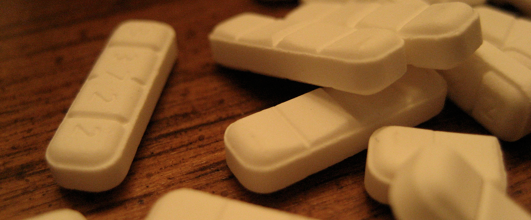This essay was originally published on CharlesEisenstein.Net.
Over the years, I’ve probably received more mail about Mutiny of the Soul than any other essay I’ve written. The idea of the article has been hugely validating for many readers: that depression, ADHD, anxiety, etc. aren’t chemical malfunctions of the brain, nor spiritual malfunctions of the mind; rather, they are forms of legitimate rebellion against life structures that are unworthy of one’s full participation or attention. They are more symptoms of a social illness than of a personal deficiency. As Krishnamurti said, “It is no measure of health to be well adjusted to a profoundly sick society.”
I’ve also received my fair share of criticism for the article, mostly along the lines that it is dogmatically anti-medication. These critics say that pharmaceutical meds, while probably overprescribed, have an important role, and it is irresponsible for a layperson like myself with no psychiatric training to flout scientific consensus when people’s lives are at stake.
While I had seen a little of the science casting doubt on psych meds, I was in no position to make a strong argument against them. My piece was coming from an intuitive place: “These can’t be good.” But now the cracks are spreading in the foundation of pharmaceutical orthodoxy. I recently came across the work of one renegade psychiatrist, Kelly Brogan, who argues that depression and anxiety aren’t unlucky chemical imbalances in our brains that can be magicked away with medication, but are symptoms of something deeper. In Suffering: Who Needs It? she writes:
The entire pharmaceutical model of care is predicated on the belief that it is us against our vulnerable, dangerous, broken, annoying body. A body that needs to be chemically managed and put into its proper place of subservience relative to our prized functionality. We are prescribed to suppress and eliminate signs that are actually meaningful messages about our state of dis-ease. We don’t ask “why”, we don’t look to the roots of these symptoms. We just want to get back to work. To feel “normal.”
Later, speaking of psychiatric medications, she writes, “We are told that these medications are ‘fixing a chemical imbalance’ when they are doing anything but. They are suppressing consciousness and creating imbalance.”
Although I had been aware of weaknesses in the scientific justification for SSRIs and other meds, I was shocked at the degree of malfeasance, corruption, and cover-up the book details. It is an indictment not only of conventional psychiatry, but, implicitly, of our current system of knowledge production; i.e. academic research, increasingly corporate-funded, and the political and economic apparatus surrounding it.
Given that modern psychiatry, with its dominant pharmaceutical model, is very much part of said system of knowledge production and borrows its status and legitimacy from that of established social institutions of science and medicine, we should be wary of making too much of Dr. Brogan’s credentials. We should examine, therefore, any tendency we may have to take a book such as this one more seriously just because it is written by a credentialed psychiatrist. To say, now we can reject psychopharmaceuticals because an actual psychiatrist says so, still reinforces the same mindset of deference to medical authorities that led us to believe in psychopharmaceuticals to begin with. Why, to play on the book’s title, are our minds not our own? We (the American public) have abdicated our psychological authority to credentialed experts, diagnostic labels, and standards of sanity and well-being that coincide with submission to prevailing structures of power and privilege. We need to think for ourselves again.
That said, this book has the potency of an insider’s critique, all the more powerful because the author was once a believer herself. It is not the first exposé of its kind, but it is an unusually engaging and methodical one.
The embedding of pharmaceutical psychiatry within larger political and economic structures is apparent from the response to the book, which is backed by a major publisher (HarperCollins). Dr. Brogan described to me the consternation of its publicists at the mainstream media blackout (canceled TV appearances etc.) of the book. Perhaps they should not have been too surprised, given Big Pharma’s heavy advertising budget. Can you imagine a message that psychiatric medication is worse than useless, followed by a commercial suggesting, “Have you asked your doctor about ____?”
It would be a mistake, though, to blame direct financial conflict of interest for the establishment’s resistance to the book’s message. As an important element of the establishment itself, the mainstream media is most fond of crises and scandals that reinforce the legitimacy and the methods of existing authority. A new virus , an E. coli outbreak, an incident of terrorism, an escaped criminal, a university cheating scandal… all these underscore the need for better systems of control. The media takes them up without reservation. The response to issues that threaten the core narratives of our society are a different matter entirely.
Our world-defining stories have a kind of immune system that protects them from information that would disrupt them. The media exercises this immune response by attacking, marginalizing, or ignoring any critique that cuts too deeply. From the perspective of someone standing in the dominant story, these critiques indeed seem crazy; no wonder, because that story sets the boundaries of what is and is not real. Likewise, it seems crazy to question the narrative of “when you are sick, you go to the doctor and he or she makes you better, using the ever-expanding arsenal of modern medicine,” because so much else hinges on that narrative. Question that, and you also must question the political apparatus that is married to that story, as well as the deeper ideology of the onward march of science toward more complete knowledge and the onward march of technology toward more complete mastery. It isn’t just the financial self-interest of television networks and drug companies that is at stake.
The primary narratives of our culture form together a mythology that interweaves the very fabric of normality and tells us what is real. The simplest response to Dr. Brogan’s book is basically that she herself has gone crazy, and in her derangement is irresponsibly attacking the foundations of her profession. She is unhinged, hysterical (yes, this storyline is abetted by the fact she is a woman). There is then no need to directly address the arguments in her book, however trenchant they may appear. If they contradict established truth so violently, then we know, a priori, they must be wrong.
The reader will notice a parallel between the pathologizing of dissidents like Kelly Brogan, and the pathologizing of our personal impulses to resist or violate established social norms. If we take for granted the rightness of the world as we have known it, then to withhold full participation can only be a dysfunction, whether we label it with colloquial terms like laziness or psychiatric diagnoses like ADHD, depression, and so forth. The same fate befalls those who challenge that assumption on an ideological or political level.
What is true for critiques of the existing system also holds for alternatives to it, especially when those alternatives draw from a different basic worldview. On a personal level, the life choices people make outside normal professional pathways seem to others naïve, unrealistic, or, again, crazy. What, you left your Ph.D. program to learn permaculture? You dropped out of medical school to study acupuncture? Those who advocate such choices attract the same hostile incredulity from those who are ideologically threatened by them. If unconventional therapies like homeopathy, acupuncture, functional medicine, herbs, and thousands of other modalities actually work, what does that do to the credibility of the systems that have denied and suppressed them for so long? What does that do to the self-image and future status of those holding high positions in those systems? It is hard to admit one was wrong, especially when one has built a career and livelihood around being an authority. Therefore, paradigm-disrupting alternatives (and not only in medicine) provoke a degree of hostility that only makes sense when we recognize how much is at stake on the level of narrative. “Scientifically unproven” is the favored epithet with which to dismiss them; a neat rhetorical trick which casts their advocates as anti-science while ignoring the influence that money and ideology exert over the institutions of scientific research and knowledge production.
At best, alternative and holistic approaches to depression or anything else are kept in a safe compartment called “complementary,” tolerated perhaps, but certainly not taught in the medical schools, supported by insurance companies, or mandated by school systems. Acupuncture is welcomed, for example, as an adjunctive therapy to chemotherapy. But if someone forgoes the chemo entirely and opts to visit a cancer cure facility in Mexico, well that’s just – you know what I’m going to say – crazy.
A Mind of Your Own offers the equivalent by going beyond critique to offer a multi-dimensional holistic protocol for treating depression, involving diet, body ecology, exercise, and other practices. Clearly these subvert the dominant pharmoneurochemical paradigm, but it may not be immediately clear that they are part of a broader radicalism. After all, whether you “fix the patient” with chemicals or with other methods, aren’t you still helping her adjust to a “profoundly sick society”? That is a criticism frequently levied at so-called holistic treatments for depression. I asked Dr. Brogan to respond. She said:
My whole premise is that depression is an opportunity for transformation and that this transformation is best engaged, for many of us, through sending the body signals of safety; i.e. diet, movement, sleep, meditation/relaxation response. This isn’t a symptom management program. It’s a root-cause-resolution endeavor that seeks to illuminate connections between different bodily systems heretofore conceived of as separate. Acknowledging and accepting this invitation also begets a level of consciousness around bodily integrity that extends to engagement with the medical system, consumerism, and fear around adversity.
Clearly, this approach is not so simple as replacing a Prozac pill with a St. John’s Wort pill. In our culture of separation we like to divide the physical from the psychological, and, depending on our orientation, demote one or the other to secondary status; hence on the one hand the disparagement of certain conditions as “psychosomatic,” and on the other hand, the prejudice against treatments for depression that are “just physical.” In fact, somatic-level changes that require volition and commitment, such as radical dietary changes, may necessarily involve profound changes in the way one engages life and sees the world. Psychological state is not separate from lifestyle state, relationship state, work state, dietary state. Neither are cause and effect separable. Does poor diet cause depression? Or does depression cause poor diet?
The prescriptions in A Mind of Your Own encode a shift in basic worldview, not only diet and lifestyle. It pinpoints a major source of depression in chronic inflammation, linked to common medications as well as unhealthy intestinal flora, which in turn stems from practices that are foundational to the American way of birth and life. From hospital births and C-sections, to antibiotics, statins, and birth control pills, to practically everything in the standard Western diet, much of what is normal, advanced, or modern is actually making people miserable. To make the changes the book prescribes therefore requires a repudiation of norms, and consequently of the worldview that embeds them. That includes the ideology of progress, the veneration of science and technology, and the conception of the self as separate from, and in fundamental conflict with, the external world. Gone, then, is the War on Germs; gone is the regime of pharmaceutical control over body processes.
In contrast, the holistic therapies Kelly Brogan outlines are grounded in a sponsoring worldview of interconnectedness and wholeness, that seeks to cooperate with rather than conquer nature. Part of that worldview is trust in the body’s wisdom and innate healing capacity. No longer is depression an enemy to fight. It is a symptom of imbalance, and the response then is to restore wholeness on every level, including that of work, relationship, and life purpose. Therefore, depression is also a gateway to an expanded normal, that brings the qualities of interconnectedness and wholeness to all aspects of life.
I’m not asserting here that every case of depression or any other malady can be traced directly to something one can change with appropriate will and awareness. Life is more mysterious than that. Despite a profusion of psychosomatic maps of the kind Louise Hay made famous in You Can Heal Your Life, simplistic formulas like “Lung problems are about grief” or “Throat problems are about not speaking your truth” are not always helpful. Any serious disease (by which I mean a condition that makes it impossible to live normally) is an invitation into the unknown.
The difference between an allopathic therapy and a holistic therapy is that the former rejects that invitation and seeks to return the patient back to normal, back to the previously-known, while the latter accepts the invitation and opens the door to examining the whole of his or her life. That means that any therapy, whether pharmaceutical, herbal, or dietary, or even the application of colored lights and crystals, can conform to the allopathic mindset if it is reduced to a formula that effaces the unique individuality of the recipient.
The “whole of one’s life” extends to include that person’s relationships to others and to society. If we are to take Krishnamurti at his word, then this epidemic calls for therapies that are social, economic, and political, and not just physical or even mental. In other words, there is a political dimension to the epidemic of psychiatric illnesses. They alert us to a society that is indeed “profoundly sick.”
I believe that we can take Krishnamurti’s aphorism a step further. To be well in a profoundly sick society, one must contribute to the healing of that society. A Mind of Your Own would not be complete if it sought only to give advice to individuals seeking help and ignored the system that is harming them. Just as there is a political dimension to the depression epidemic, so also must any truly holistic book on the subject carry political implications.
On a sociopolitical level we face a choice that echoes the allopathic/holistic distinction: Do we attempt to “fix the patient” – our ailing body politic – or do we accept the invitation into the unknown? So far, the choice has mostly been the former. For example, after the 2008 financial crisis, we bolstered ailing financial institutions with “injections” of liquidity to keep the system going, rather than transitioning to a post-growth ecological economy. After the November terror attacks in Paris, France and the EU strengthened the security state, rather than moving into a post-imperial geopolitics that no longer seeks to maintain dominance. In the fashion of an addict, we address failure by doing even more of the same, hoping that more competent management of the situation will buy time for some miracle to happen.
Addressing psychiatry, A Mind of Your Own welcomes the invitation into new territory that the failure of pharmacological psychiatry offers. Will the profession accept that invitation? Will we accept it, when it comes, as individuals? Will we accept it as a civilization? As one of the defining diseases of our time, depression afflicts us on a collective level as well as a personal. Jimmy Carter identified it as “malaise.” It is hard to deny the signs: the going-through-the-motions, the lack of vision and direction, the feeling of being trapped in an intolerable but inescapable situation, a premonition of doom that swings from anxiety to panic to numbness, the feelings of powerlessness, the loss of agency, the deflation of former goals and ambitions. It was a telling moment when George W. Bush, hoping no doubt to rekindle that adventurous can-do spirit of the previous generation’s moon missions, announced the goal of a manned landing on Mars. Hooray, a new goal to incite our passion! It didn’t work, did it? Most of you probably don’t even remember the announcement. Inflated versions of old aspirations aren’t going to help. The old story that generated those aspirations is dying. It is time to stop fighting the invitation into the unknown that depression offers on a personal and collective level.
The age of the separate self is coming to an end. We can no longer stand to live in its boxes. I look forward to the day when psychiatric medication goes the way of lobotomy, electroshock therapy, straitjackets, and padded cells, to be followed by the demise of their kin in every realm: prisons, state surveillance, pesticides, genetic engineering, forced schooling, military occupation, confinement feedlots, the War on Drugs, economic austerity… the whole apparatus of domination and control. That is why, although it focuses on a small part of the bandwidth of suffering on this planet, A Mind of Your Own is a revolutionary book. I hope it reaches the many revolutionaries-in-the-making among the depressed, the anxious, the addicted – everyone who rebels against the story that rules our world.















